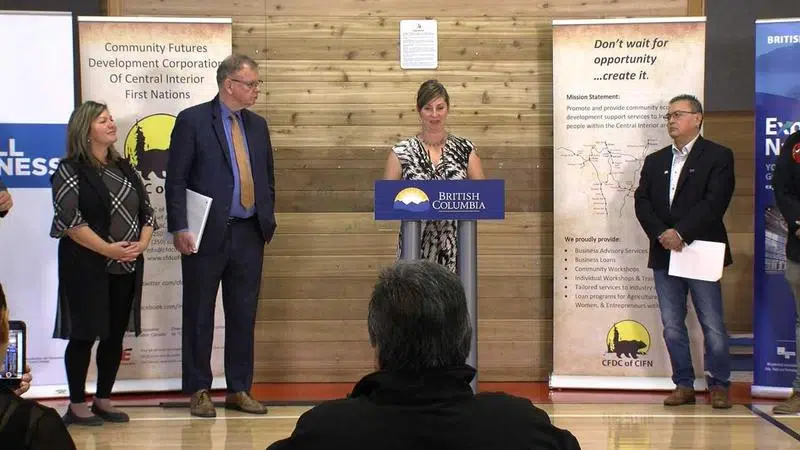
New export advisor in Kamloops to help support Indigenous businesses
KAMLOOPS — Indigenous entrepreneurs looking to expand their businesses now have a go-to advisor to help begin exporting their products.
B.C. Jobs Minister Bruce Ralston announced today that the export navigator program now has an advisor dedicated to Indigenous business guidance.
Daphane Nelson will be based in Kamloops out of the Community Futures Offices for Central Interior First Nations. The export navigator program has already helped more than 300 businesses since 2015.



